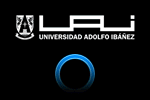

In its commitment to an education that promotes individual autonomy in responsible decision-making, Universidad Adolfo Ibáñez encourages its students to develop a personality based on the use of individual freedom and the exercise of personal responsibility.
To make this possible, we have made a guarantee to the university community that our university constitutes a safe space free from discrimination and committed to gender equality and inclusion in diverse aspects of university life.
In 2018 a new Harassment Protocol was approved, which involved the collaborative effort of a working group made up of representatives from throughout the university community. The outcome of this university-wide effort is a new Sexual Harassment Subcommittee and an Observatory, as well as the appointment of an Ombuds.


The Ombuds is an absolutely confidential, independent, impartial and informal resource; open to listen, provide information about the Harassment Protocol and its procedures on the matter. It assists and collaborates in the identification of problems or conflicts in order to contribute in the search for solutions or possible agreements within all relevant alternatives. Thus, eventually, any affected person can define and canalize their possibilities and options for action.
During this time in which we continue to communicate at a distance, the Ombuds continue to accompany the community virtually, in order to provide a space for conversation and safe, informal and close assistance.
Anyone who wish to communicate with the Ombuds can contact them through the following e-mail addresses:
This section contains relevant information on policies, standards, action plans and main indicators that aim to orient students, the academic world, university employees and consultants and the general public, regarding initiatives that have been developed by Universidad Adolfo Ibáñez on the issue.
A large part of the material you will find below is the product of a joint and participatory effort of the university community and is under constant revision, for the purpose of improving it and adopting specific actions necessary to made strides towards gender equality and inclusion.
This section provides the documents used to shape this Protocol, in order to disclose all stages involved in this important issue.